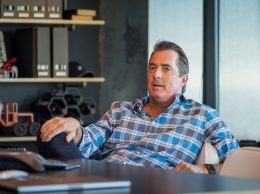Paso Robles-based software firm IQMS has taken an outside investment for the first time in its 25-year history, raising an undisclosed sum from the same financiers who have backed Facebook, Expedia and Netflix.
The company said Aug. 19 that Technology Crossover Ventures led the funding round with Banneker Partners participating. The terms of the deal weren’t disclosed, but founders Randy and Nancy Flamm retain “a big piece” of the company and will continue to oversee day-to-day operations, the company told the Business Times.
Founded in 1989, IQMS makes software that manufacturers use to plan and run factory operations. By integrating with hardware attached to machines on the shop floor, it has built up a specialty with customers whose products need to be highly traceable, such as automotive parts makers and medical device makers.
Between 2011 and 2013, revenue at IQMS grew 56 percent to $32.2 million. The new capital is earmarked to bolster the company’s sales efforts and product development and bring in guidance from Silicon Valley’s heavy-hitters on how to grow even faster.
“We’ve always been very profitable — and are still very profitable — so we don’t need the money. But we need that expertise,” IQMS President Randy Flamm told the Business Times. “To get that expertise, I didn’t want to go to straight consultants because they don’t have any skin in the game.”
Flamm said that after the company appeared on the Inc. 5000’s fastest-growing companies list for several years in a row, it garnered interest from growth-equity firms. IQMS evaluated about 90 different potential partners before settling on Technology Crossover Ventures and Banneker.
With the new capital, IQMS is looking to win new customers from its competitors — including Santa Barbara-based QAD — as fast as it can.
“It’s always a little scary to hear, ‘You guys are great, you’re one of the best-kept secrets in the industry.’ We’re trying to change that, and that’s the big push that [Technology Crossover Ventures] is bringing to the table,” Flamm said. “If I was QAD, I’d probably be concerned.”
IQMS has long had sensors that attach to machines on the shop floor to feed data to its systems, but that trend is now taking off with the so-called Internet of Things. A factory looks more and more like a network by the day. And IQMS software can instantly call up information that manufacturers need in high-stakes industries. Its software can track not only lots of products, but also the lots of raw materials used to make those products. It can track whether each sub-component met the required tests before being integrated into a product. And it can all be printed on an invoice, which helps smooth regulatory requirements in various industries. “It’s not new to us,” Flamm said of the Internet of Things. “It’s one thing to generate all that information, and it’s another thing to know what to do with it.”
“With regulatory environments becoming stricter and need for more visibility on the shop floor rising, manufacturing customers view IQMS as an absolute necessity to remain competitive,” Stephen Davis, a managing partner at Banneker Partners, said in a news release.
IQMS has about 200 employees in North America, with 140 of them in Paso Robles. The company recently added a second building, which it financed with cash rather than debt, to the property it owns near the Paso Robles Airport. The two buildings total about 62,000 square feet, and the company has room for more structures on the property in the future.
IQMS is notable for the Flamms’ unique management style. It has been profitable since near inception. It has never taken on significant debt. The company is extremely selective in hiring, bringing in several employees for each open position and then keeping only the best. Flamm said none of that will change with the capital infusion.
“One of the reasons so many of those equity companies are interested in us is because of how we run the company,” Flamm said. “They come in and say, ‘What do you mean you’re debt free? You just moved into a new building.’ I explain that we paid cash for the building. It’s very unique, but the only reason we can do that is because we’re so profitable.”
There’s talk of a tech bubble these days, but Flamm was emphatic that the company’s decision to take on extra capital didn’t have anything to do with the heated markets.
“We remember in 2000 when it all fell apart, and they were giving out crazy valuations and then everything burst,” Flamm said. “We were not affected whatsoever because we didn’t jump on that bandwagon. And there are some bandwagons today that we won’t jump on.”






 Print
Print Email
Email

















